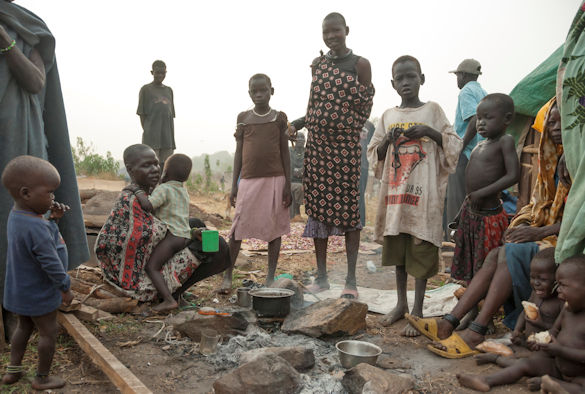A new study, published in The Lancet Global Health, highlights the effectiveness of behavioural intervention in reducing psychological distress in conflict-affected regions.
More than 125 million people today are directly affected by armed conflict, the highest number since World War II. Although reported rates of mental disorders vary, previous studies have shown that mood and anxiety disorders are common, with high rates for depression and posttraumatic stress disorder. As such, scalable interventions to address a range of mental health problems are desperately needed.
Self-help Plus (SH+) is a guided self-help intervention developed by the World Health Organization (WHO) based on audio-recorded material and an illustrated workbook that can be facilitated by briefly trained non-specialists. It is delivered to groups of up to 30 people over 5 weekly sessions of 2 hours duration. As such, SH+ has been developed as a way of rapidly supporting large numbers of people experiencing psychological distress in the context of humanitarian crises.
Randomised controlled trial
To ascertain the effectiveness of SH+ a research team led by Dr Wietse Tol (Johns Hopkins University, US) and Dr Mark van Ommeren (WHO) conducted the first ever-randomised controlled trial of the intervention. The research team included the University of Liverpool’s Dr Ross White (Reader of Clinical Psychology, Department of Psychological Sciences). Dr White was one of the experts consulted by WHO in the development of the SH+ intervention which is based on Acceptance and Commitment Therapy.
The trial was conducted in Uganda, which hosts over 1.2 million refugees fleeing conflicts in countries such as neighbouring South Sudan and the Democratic Republic of Congo. The researchers visited 14 different villages in the area and recruited 20-30 female South Sudanese refugees from each village. A total of 694 female refugees with at least moderate levels of psychological distress were recruited into the study. Villages were randomly assigned to receive either SH+ or enhanced usual care. Participants were assessed 1 week before, 1 week after, and 3 months after the intervention.
Results
The findings of this large randomised controlled trial indicated that SH+, compared to enhanced usual care, was effective at reducing psychological distress (as assessed by the Kessler 6 assessment instrument) and bringing about improvements on a range of other outcomes (including functioning, depression and wellbeing) 3 months after the intervention had stopped. The SH+ intervention was highly acceptable to participants with at least 80% of participants allocated to receive SH+ attending each of the five sessions.
Dr White, said: “Our research suggests that SH+ may be well suited as a first-line intervention for large populations exposed to major stressors in low-resource settings. SH+ will complement other intensive forms of intervention for those experiencing more severed difficulties.
“Further research is required to explore how the beneficial impact of SH+ can be maintained over longer periods of time.”
The full study, entitled ‘Guided Self-Help to Reduce Psychological Distress in South Sudanese Female Refugees in Uganda: A Cluster Randomized Trial’, can be found here.
